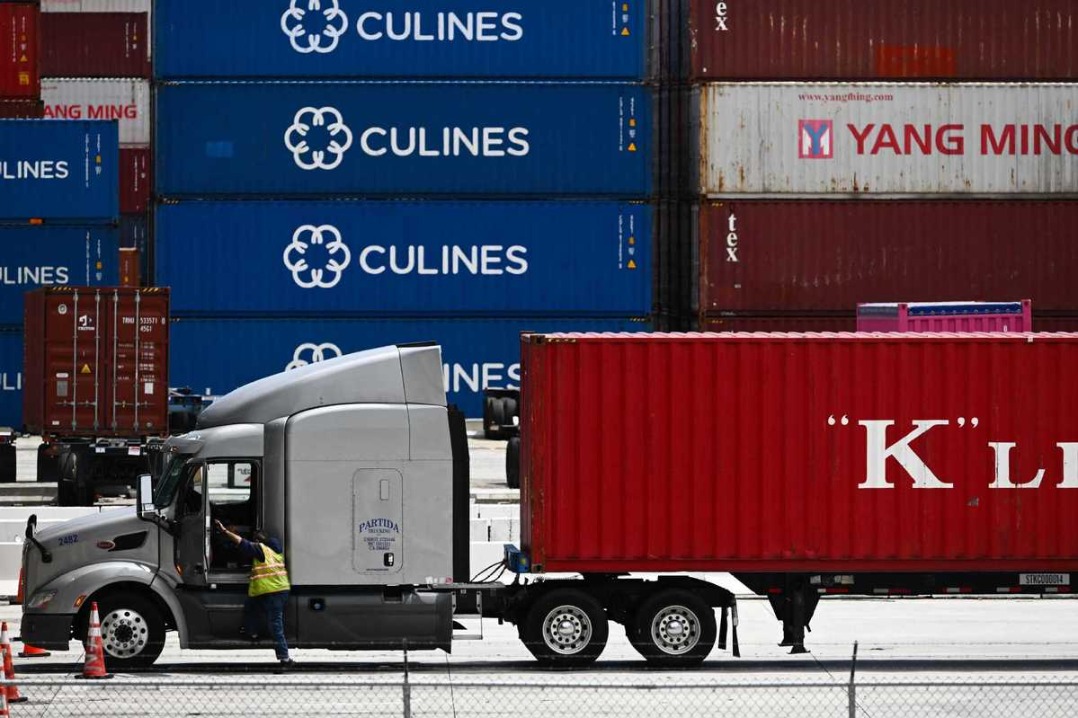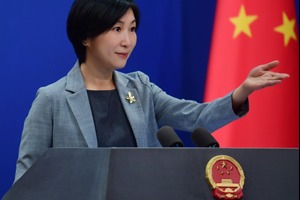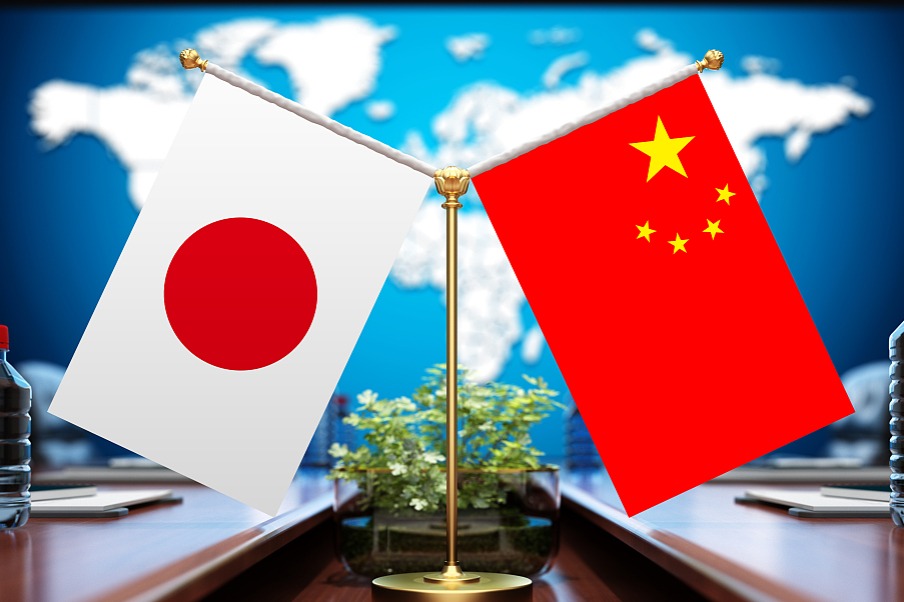US report on China slammed
Document makes Washington seem weak, on the defensive, experts say


The 2024 annual report on China issued last week by the US-China Economic and Security Review Commission, or USCC, has proposed that the Congress of the United States strengthen restrictions targeting China in areas such as trade, key economic policies, industries and consumer products.
Beyond intensifying pressure on China over issues that Beijing has repeatedly warned are core interests and red lines for US-China relations, the report goes further, proposing for the first time the revocation of China's Permanent Normal Trade Relations, or PNTR, status and launching a "Manhattan Project-like" artificial intelligence initiative to vie with China.
According to a US policy expert, the report actually makes Washington appear weak.
"The US looks like it's on the defensive, perhaps sensing that China continues to advance despite the many roadblocks that Washington and its allies have tried to put in its way," said Anthony Moretti, an associate professor in the Communication and Organizational Leadership Department at Robert Morris University, Pennsylvania.
The USCC report, a comprehensive 793-page document, offers a wide-ranging assessment of US-China relations and proposes 32 legislative recommendations for the US Congress. It delves into various aspects, including economic and trade ties, scientific and technological competition, geopolitical security, diplomatic relations, human rights, Taiwan, Hong Kong, and China's influence in the Middle East. The report also expresses concern about China's growing military power and counter-intervention capabilities in the Asia-Pacific region.
Established by Congress in 2000, the USCC is an independent and bipartisan body tasked with analyzing the national security implications of the US-China economic relationship, with 12 congressional appointees providing oversight and guidance. The report states its findings and recommendations are based on extensive research and expert testimony from six hearings held over the past year.
Protectionist approach
Moretti said the recommendation that "stands out" is the suggestion that China's PNTR status be revoked. According to the report, the US needs more "leverage" to rein in China's trade practices.
"Doing this now flies in the face of 25 years of free trade," he said, adding that the US is realizing that "a small yard, high fence approach isn't working".
"I might be oversimplifying here, but a protectionist approach and a presumption of strength do not go hand in hand," he said.
Yang Nan, an associate research fellow at the Chinese Academy of Social Sciences' Institute of American Studies, said the attempt to remove China's PNTR status with the US violates World Trade Organization rules and will only harm the common interests of both countries.
"Right now, the inflation rate in the US is already high, and terminating PNTR with China would push it higher. Also, China's large market and unique supply chain are difficult to substitute. Without adequate replacements, such a move will also potentially affect its social stability as well," Yang pointed out.
The Manhattan Project, a massive World War II collaboration between the US government and private industry, led to the development of the first atomic bomb. Regarding the proposal to "establish and fund a Manhattan Project-like program dedicated to racing and acquiring an Artificial General Intelligence capability", as the report's executive summary stated, Moretti said the US had equated almost everything tech-related from China as a threat to national security.
"The issue with casting the net that broadly is that if you consider everything to be a threat, then in reality, you have nowhere to go in terms of cooperation," he said.
According to Moretti's analysis, the US equated the technology with which China collects data as dangerous, while in reality, products made anywhere in the world were gathering data.
"To claim that data that China can collect is especially risky is a difficult argument to make," he said.
If Congress accepts the recommendation to revoke China's PNTR status, Chinese goods could face a baseline tariff of at least 35 percent. The report also proposes eliminating the "de minimis" exemption, meaning that even small shipments of Chinese goods valued below $800 would no longer be exempt from duties.
Beyond AI initiatives, the report suggests tightening of US-China cooperation in biotechnology through various legislative measures. In essence, the report advocates for significantly higher tariffs on Chinese products and stricter technology controls on China.
"Let's face it, if China can create more and more of what it needs internally and if it continues to build relations with the Global South, the US risks weakening its domestic economy and international trade prospects," Moretti said.
Contact the writers at yifanxu@chinadailyusa.com.

































